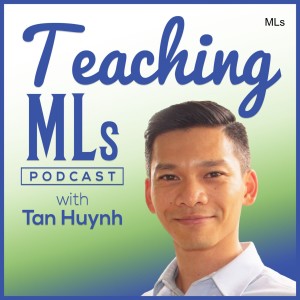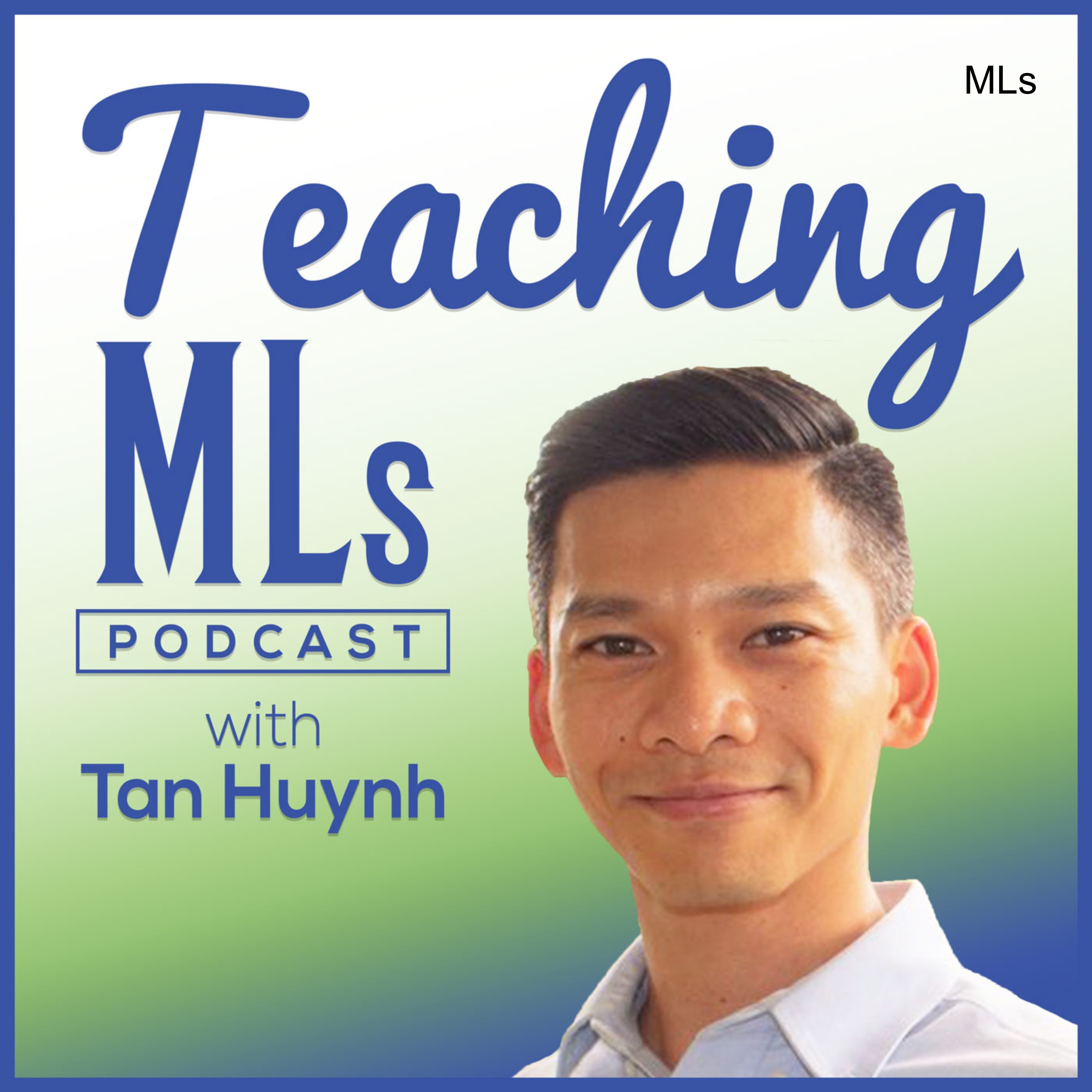Episodes

Friday May 09, 2025
Ep 209. Elise White Diaz: A framework for trauma-informed instruction
Friday May 09, 2025
Friday May 09, 2025
Elise White Diaz is well-versed in the challenges facing diverse students from difficult backgrounds.
Prior to her work in public education, Elise’s passion for trauma-informed pedagogy began when she moved to Tegucigalpa, Honduras to serve at a school for child laborers in the garbage dump. There she taught bilingual and ESL education at the secondary level, and learned so much from her students who overcame obstacles and went on to college.
Upon returning to the United States, Elise brought her experiences to a diverse district in North Texas. She wove together principles from culturally-relevant, trauma-informed education and language acquisition in innovative ways, bringing dramatic gains in standardized test (STAAR) scores. Soon after, she began to mentor and coach teachers in how to recreate these routines. Elise has served in various roles in Emergent Bilingual education, including co-teaching, instructional coaching, writing curriculum, and offering professional development to Texas schools.
As a consultant for Seidlitz Education, Elise enjoys supporting teachers in their important work of building language and connection across cultures and obstacles. She holds a Master’s degree from Fuller Seminary in Intercultural Studies and lives in the Dallas area with her husband and two children. She is a member of the National Association for Bilingual Education and Women-for-Orphans-Worldwide, and returns to Central America wherever she can.

Sunday Mar 16, 2025
Ep 208. Welcome to Teaching MLs w/ Valentina Gonzalez
Sunday Mar 16, 2025
Sunday Mar 16, 2025
Engage, Empower, Educate: Unleash the Potential of Multilingual Learners
What′s your "why" for being a teacher? Unlike other professionals, teachers often have strong reasons for why they teach and a clear sense of purpose. Acknowledging and understanding this purpose helps educators to not just do what they do but do it well.
This illustrated guide was designed for all classroom teachers to emphasize the unique challenges and opportunities that arise in multilingual learner education. Using Simon Sinek′s Golden Circle theory to understand and elevate that sense of purpose, the book is organized into three parts: the why, the how, and the what of teaching multilingual learners. You will learn
- The benefits and goals of a multilingual education
- How to design learning experiences for multilingual learners and how to respond when students are not learning
- Culturally inclusive pedagogy and how it positively supports the identities of your students
- How to foster oral language skills, build vocabulary, and increase students’ word knowledge
- How to engage families and caregivers and create a sense of belonging in your classroom
- And so much more!
With a clear understanding of the research-based tools, techniques, and instructional strategies described and illustrated in the book, a solid sense of purpose, and a dash of grace for you and your multilingual learners, you will be well on your way to creating productive and positive learning opportunities that meet the best interests of all students, families, educators, and the community.
To support this podcast, please consider purchasing Valentina's book using this link https://amzn.to/4itjloY

Monday Jan 13, 2025
Ep 207: Centering Multilingual Learners w/ Dr. Marilee Coles-Ritchie
Monday Jan 13, 2025
Monday Jan 13, 2025
This book is written for teachers with intellectual agility, compassionate hearts, and creative minds — those who want to support their students and appreciate specific strategies. This essential guide is compact, research-based, and includes the most basic supports. It's accessible with ideas that can be implemented in a teacher's established or current structure. This book will provide secondary teachers with essential tools to support Multilingual Learners (MLs) in your classes. After reading this book, teachers will have two main takeaways: one, you’ll realize that your classroom is enhanced when you are fortunate enough to have Multilingual Learners in it; two, you’ll have the tools to support MLs or English Learners or ESL learners in your classroom and see their growth without compromising the learning of primarily English speakers. https://amzn.to/4gR8Ond

Sunday Oct 20, 2024
Ep 206. Creating a hub for newcomers w/ Megan Dreher
Sunday Oct 20, 2024
Sunday Oct 20, 2024
Here is an example of the newcomer hub Megan talked about: https://docs.google.com/presentation/d/1Fxo0d6labSdIBCQwL92ln0X4mcO48WXSbT2Hna6IgEQ/edit#slide=id.p
She is generously sharing her email to those who want to know more about the newcomer hub: megan_dreher@fis.edu

Friday Aug 30, 2024
Ep 205. Empowering EAL Learners in Secondary Schools
Friday Aug 30, 2024
Friday Aug 30, 2024
One in five students are identified as speaking English as an Additional Language (EAL) and all teachers are highly likely to be teaching multilingual students in their classrooms. As our schools become more culturally and linguistically diverse, they must respond to the needs of the students in front of them, and this book provides a range of strategies and resources to ensure teaching is adaptive and responsive so that all learners thrive and fulfil their academic potential.
At the heart of the book is developing an understanding of how languages are acquired and an awareness that all students, regardless of their current English language proficiency, need to be offered a challenging and supportive environment. Chapters offer:
- High-yielding, practical approaches and strategies to ensure that students are able to access content-appropriate lessons and simultaneously develop their language
- A plethora of resources and step-by-step examples, showcasing how explicit vocabulary and grammar learning can be context-based for the benefit of all learners
Each teacher is positioned as a language teacher, with the responsibility of planning sessions where language is not perceived as an add-on, but as an integral and pivotal part. This book will empower you as an educator and ensure that your classroom is a language-aware and stimulating environment for your students. It will be essential reading for all secondary school educators and teaching assistants who support EAL students in mainstream lessons and are responsible for producing resources and implementing classroom strategies.

Friday Aug 23, 2024
Friday Aug 23, 2024
You can access the article that Ruslana referenced in this podcast conversation.
https://www.colorincolorado.org/article/teaching-writing-content-areas-research-practice
- Teaching Writing in the Content Areas: from Research to Practice https://www.colorincolorado.org/article/teaching-writing-content-areas-research-practice
- Teaching with the WIDA 2020 ELD Standards in a Second-Grade Literacy Block by Dr. Ruslana Westerlund
- Scaffolding Multilingual Learners’ Access to Wisconsin Social Studies Inquiry Through the WIDA ELD Standards by Dr. Ruslana Westerlund and Elizabeth Folberg
- Scaffolding for Multilingual Learners in Elementary and Secondary Schools available here on Routledge
- Making Language Visible in Social Studies: A Guide to Disciplinary Literacy in the Social Studies Classroom

Friday Aug 16, 2024
Ep 203. Breaking new ground with SLIFE
Friday Aug 16, 2024
Friday Aug 16, 2024
In its second edition, Breaking New Ground for SLIFE builds on its model for supporting students who are new to English and may have experienced a disruption in their schooling. The practices presented in this book emerge from the belief that education for students with limited or interrupted formal education, also known as SLIFE, should not be remedial but should build on the students’ prior learning experiences and existing areas of knowledge. This second edition has been significantly updated, informed by recent research in the field, feedback from teachers, and new scholarly treatments of the topic. Breaking New Ground for SLIFE, second edition, explores the MALP approach, highlights how technology can be incorporated into classroom activities, and includes actual MALP projects implemented by MALP-trained teachers of both young and adolescent learners. In addition, the authors provide a newly revised MALP Teacher Planning Checklist.
By reading Breaking New Ground for SLIFE, educators will:
- Further develop their understanding of the needs of students with limited or interrupted formal education (SLIFE)
- Learn about the Mutually Adaptive Learning Paradigm (MALP) and how to integrate it into their classrooms
- Discover and learn about the MALP instructional approach and how to use it to develop a project-based curriculum using examples from teachers in the field

Friday Aug 02, 2024
Ep 202. Collaborative assessments for MLs
Friday Aug 02, 2024
Friday Aug 02, 2024
Join bestselling authors Margo Gottlieb and Andrea Honigsfeld on an engaging journey to showcase collaborative assessment within assets-driven instructional practices. Integrating instructional and assessment cycles, explore how multilingual learners can interact with each other and their teachers to form lasting partnerships. Using evidence-based, research-informed strategies, Gottlieb and Honigsfeld invite educators to form partnerships to fortify linguistically and culturally sustainable assessment within their classroom routines.
Collaborative assessment approaches AS, FOR, and OF learning encourages relationship building to foster multilingual learners’ academic, linguistic, cultural, and social-emotional development. This practical guide supports educators in enacting collaborative assessment and welcomes multilingual learners to be partners in the process.

Friday Jul 05, 2024
Ep 201. Collaboration for MLs with exceptionalities
Friday Jul 05, 2024
Friday Jul 05, 2024
Cooperation, coordination of services, and impactful collaboration are critical to the success of multilingual learners with exceptional needs. Written by experts in the fields of language and literacy development, equity, and special education, this practical guide emphasizes the power of partnership and inclusive pedagogy to transform educational practices for culturally and linguistically diverse students. Through six comprehensive chapters, the book offers strategies for effective co-planning, co-assessment, and co-teaching, while emphasizing the importance of cultural diversity and equitable classroom-based approaches for students with exceptionalities.
Links mentioned in the podcast:
https://udlguidelines.cast.org/

Sunday May 26, 2024
Sunday May 26, 2024

